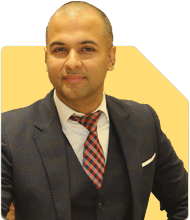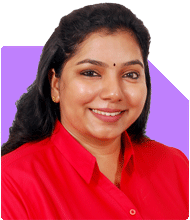Worried 50-Year-Old Investor with No Job Asks for Advice on MMTC Stock and PF
Ramalingam Kalirajan |7478 Answers |Ask -Follow
Mutual Funds, Financial Planning Expert - Answered on Jan 09, 2025
He has an MBA in finance from the University of Madras and is a certified financial planner.
He is the director and chief financial planner at Holistic Investment, a Chennai-based firm that offers financial planning and wealth management advice.... more

Am currently 50...I dont hv job. .Iam invested in mmt but right now am 15% on my PF....I invested 19lacs on mkt. ...wht shud ido ?
Key Concerns
Jobless Situation: Absence of steady income creates financial pressure.
Market Volatility: A 15% loss indicates exposure to high-risk investments.
Emergency Needs: Liquidity might be limited if all funds are in the market.
Long-Term Goals: Planning for retirement is essential at this stage.
Strengths
Investments in Market: Rs. 19 lakhs is a good corpus to build wealth.
Time to Recover: At 50, there is still time for strategic financial planning.
Aggressive Approach: Shows you are willing to take risks, which can be an advantage.
Recommendations
Reassess Portfolio Allocation
Review your investments in mutual funds or stocks.
Shift a portion to balanced or hybrid funds for stability.
Reduce exposure to high-risk segments like small caps or sectoral funds.
Create a Contingency Fund
Set aside Rs. 3-5 lakhs for emergencies.
Use liquid funds or short-term fixed deposits for easy access.
Explore Income Sources
Find part-time or freelance opportunities to ease financial stress.
Rental income, tutoring, or consulting can supplement your needs.
Stop Panic Selling
Do not redeem investments in a downturn.
Hold onto quality assets for market recovery.
Diversify Investments
Avoid putting all money in equities.
Consider fixed income options like Senior Citizen Savings Scheme (when eligible), or debt funds.
Plan for Retirement
Evaluate the gap between your current corpus and retirement needs.
Use Systematic Withdrawal Plans (SWP) later for regular post-retirement income.
Monitor Regularly
Review your portfolio every 6 months.
Seek guidance from a Certified Financial Planner for rebalancing.
Final Insights
Your situation requires balanced risk-taking and income generation strategies. Preserve capital while focusing on gradual recovery. Discipline and informed decisions will help secure your financial future.
Best Regards,
K. Ramalingam, MBA, CFP,
Chief Financial Planner,
www.holisticinvestment.in
https://www.youtube.com/@HolisticInvestment
You may like to see similar questions and answers below
Nikunj Saraf | Answer |Ask -Follow
Mutual Funds Expert - Answered on Feb 16, 2023
Dev Ashish | Answer |Ask -Follow
MF Expert, Financial Planner - Answered on Aug 24, 2023
Ramalingam Kalirajan |7478 Answers |Ask -Follow
Mutual Funds, Financial Planning Expert - Answered on May 27, 2024
Ramalingam Kalirajan |7478 Answers |Ask -Follow
Mutual Funds, Financial Planning Expert - Answered on Aug 28, 2024
Ramalingam Kalirajan |7478 Answers |Ask -Follow
Mutual Funds, Financial Planning Expert - Answered on Nov 01, 2024
Harsh Bharwani |69 Answers |Ask -Follow
Entrepreneurship Expert - Answered on Jan 09, 2025
Radheshyam Zanwar |1137 Answers |Ask -Follow
MHT-CET, IIT-JEE, NEET-UG Expert - Answered on Jan 09, 2025
Radheshyam Zanwar |1137 Answers |Ask -Follow
MHT-CET, IIT-JEE, NEET-UG Expert - Answered on Jan 09, 2025
Pushpa R |42 Answers |Ask -Follow
Yoga, Mindfulness Expert - Answered on Jan 09, 2025
Pushpa R |42 Answers |Ask -Follow
Yoga, Mindfulness Expert - Answered on Jan 09, 2025
Ravi Mittal |500 Answers |Ask -Follow
Dating, Relationships Expert - Answered on Jan 09, 2025
Kanchan Rai |479 Answers |Ask -Follow
Relationships Expert, Mind Coach - Answered on Jan 09, 2025
Kanchan Rai |479 Answers |Ask -Follow
Relationships Expert, Mind Coach - Answered on Jan 09, 2025
Radheshyam Zanwar |1137 Answers |Ask -Follow
MHT-CET, IIT-JEE, NEET-UG Expert - Answered on Jan 09, 2025




























